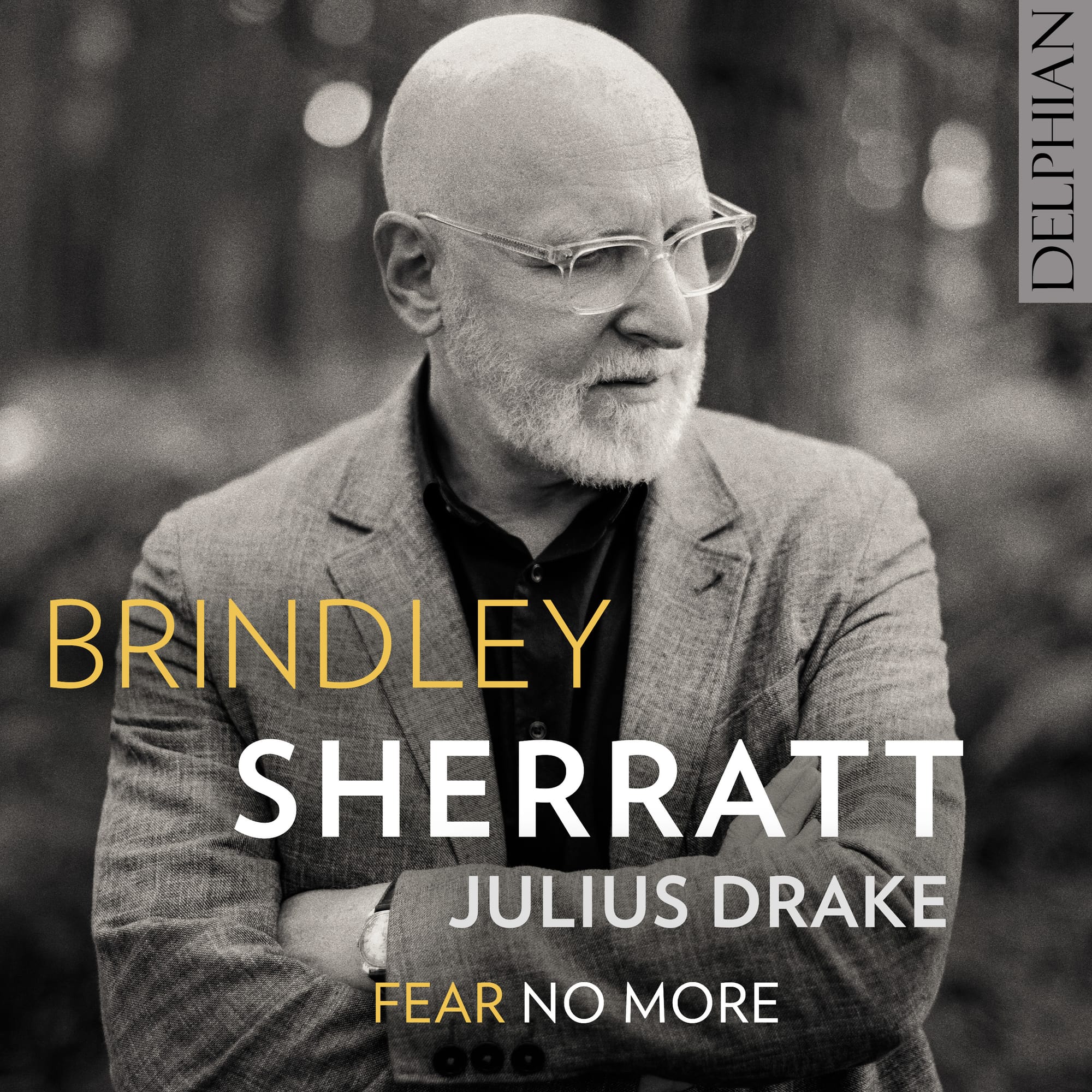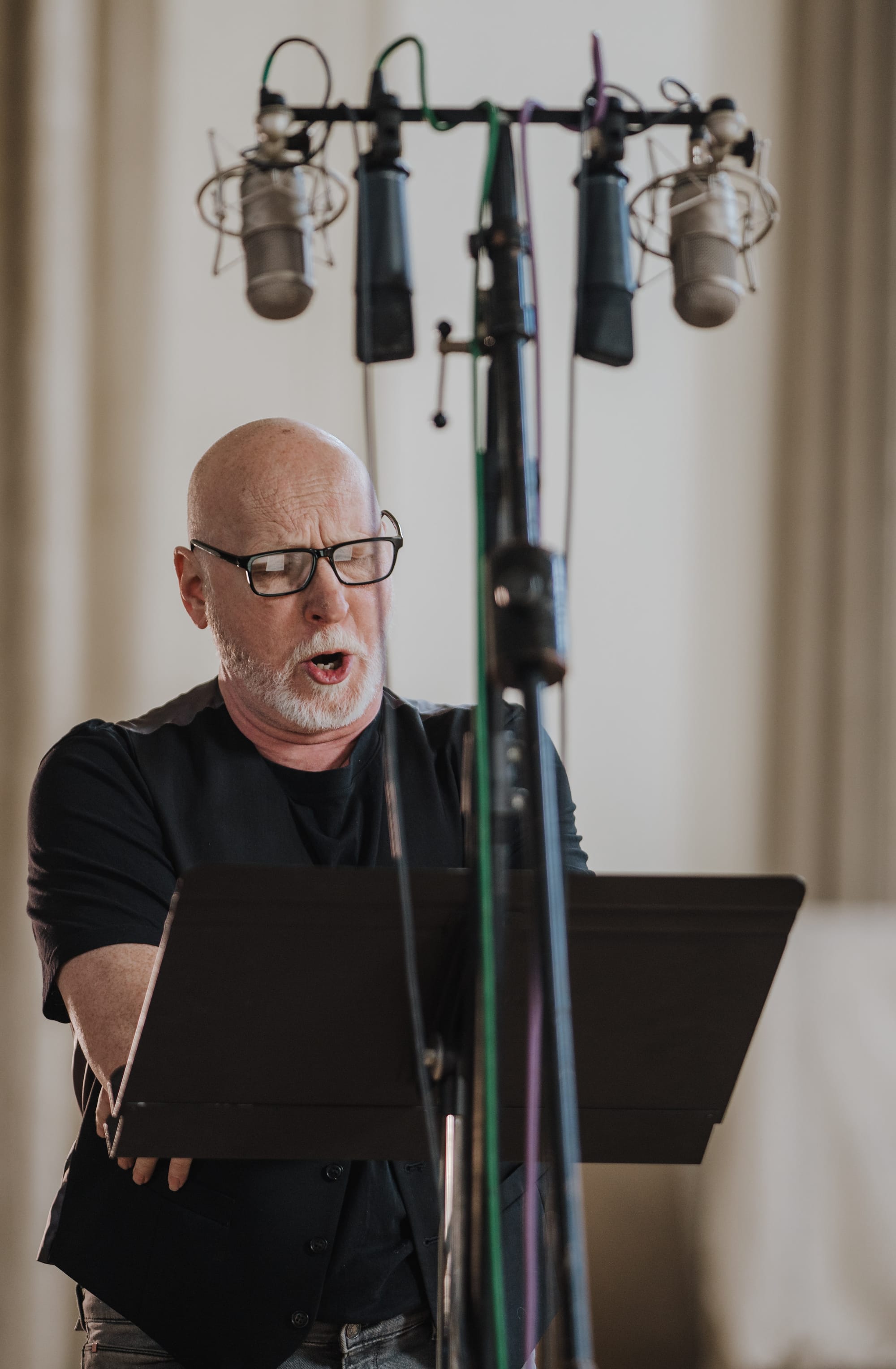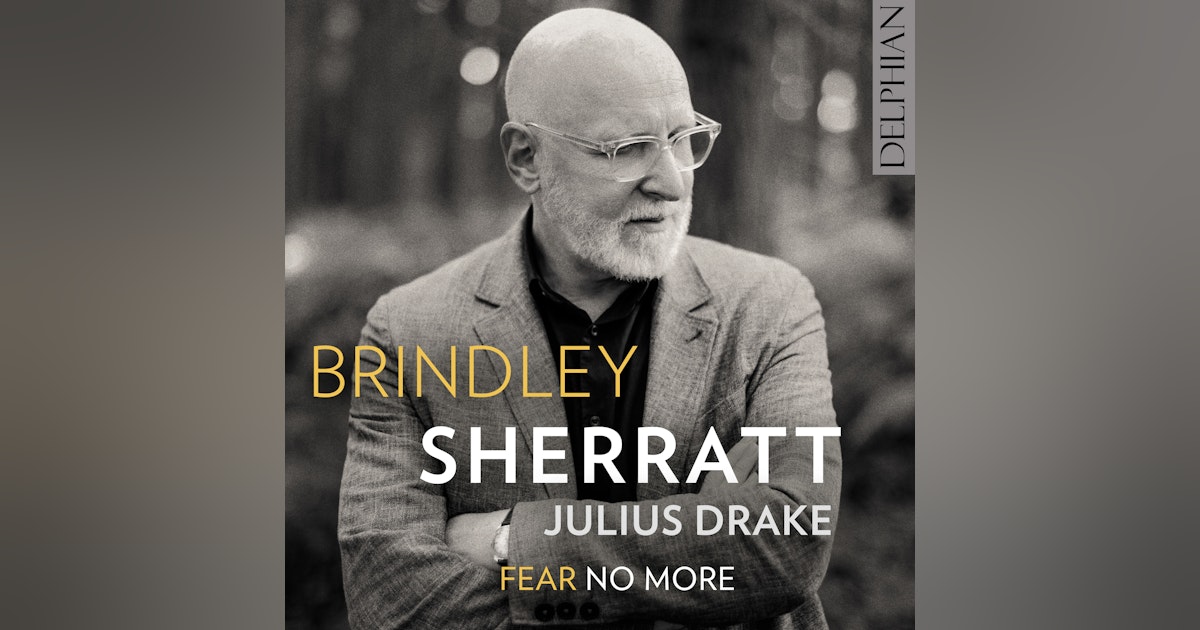REPOST: Fear No More: Brindley Sherratt's remarkable disc
Billed as Sherratt's “debut song recital recording,” all I can say is what a way to start

The recent Göttedämmung at the Royal Festival Hall was due to feature Brindley Sherratt as Hagen. It was not to be (although there was a luxury stand-in); in compensation, we have this remarkable disc for Sherratt and the fine pianist Julius Drake. On a purely sonic level, it is so easy just to bask in the sheer beauty of Sherratt's glorious bass - what a Hagen he would have been for the LPO and Jurowski - but dig deeper and we have here maybe the complete singer. From Schubert through Richard Strauss, Mussorgsky and finally to the music of “this scepter'd isle,’ Sherratt can do no wrong.
The opening Schubert group begins with Fahrt zum Hades (Journey to Hades), D526, an extraordinary song to a text by Mayrhofer those extraordinary journey ends with the question, “Wenn endet diesel Qualen? Wann?” (When, oh when, will these torments end?) before returning to the relative harmonic safety of the opening stanza. The song ends with one of those beautifully resonant low notes that are such a joy to encounter throughout the recital.

All credit to Drake for dealing with Schubert's demands so comprehensively in Der Schiffer, D 526 a better-known song, its storm visceral. But how fascinating to hear on of Schubert's Italian songs: L'Incanto degli occhi (The Wonder of the Eyes), slow, miraculous. The same - slow, miraculous - could be said of Auf Der Donau , D 563, a least initially: the variety of Drake's part, the entreaty of Sherratt's cries of "wo?" (where) in the more disturbed second stanza.
The song Der Tod und das Mädchen, D 531, is one of Schubert's best known. Full of contrast, Sherratt and Drake make it into almost an operatic scena: Sherratt's “voice of Death” is truly disturbing.

Following that with the Richard Strauss song Das Spätboot (The Last Boat) is genius. The harmonic world is like a warm bath of sound; there are some harmonic twists perhaps, that remind us that the original singer for whom the song was intended, Paul Knüpfer, was a noted Ochs Rosenkavalier.
The central item of the disc is Mussorgsky's Songs and Dances of Death: so we have had German and Italian, now Russian. This is a remarkable account. Although Sherratt has performed the version with orchestra before, but the performance at album's launch concert at the Wigmore in February with piano was Sherratt's first public outing with this piece. It sounds as if it is in his bones from birth, though. Sherratt finds lyricism as well as inhabiting Shostakovich's world, his diction crystal clear, the drama of the final “Field Marshal” in contrast to the desolation of “Trepak”.
It is so wonderful to hear music by John Ireland here, a composer whose music still has not received the recognition it deserves (try his Piano Concerto, it's only detriment being its length makes it difficult to programme). Here, we are lucky enough to have a supplementary video to the disc, of Sherratt and Drake's performance of Sea Fever. The text is by John Masefield (from his 1913 Salt-Water Ballads; Ireland's setting dates from 1913. The harmonies are absolutely radiant in the piano, while Sherratt tells his yarn hypnotically:
The disc gets its title from a song by Gerald Finzi, Fear no more the heat of the sun, a setting of lines from Shakespeare’s Cymbeline. Finzi's music specialises in a particular type of radiance (you can hear it here, and in instrumental music such as the Clarinet Concerto). Three more English songs complete the disc: Ivor Gurney's bare, dark By the Bierside (with some remarkable chromatic twists), the valedictory Limehouse Reach by Michael Head returns us to the salty tang of the sea before Captain Smart’s Fancy finds Peter Warlock - and Sherratt, and Drake - in lighter mode.
Billed as Sherratt's “debut song recital recording,” all I can say is what a way to start. But as John Fallas points out in his excellent notes, Sherratt's career “has been far from conventional”: Sherratt was originally trained as a trumpeter, but shifted to voice after winning a singing competition (which he had entered purely for fun). He sang with the BBC Singers for 13 years; only in his late thirties did he start singing opera professionally.; a Fiesco Simon Boccanegra at ENO in 2011 is seared on my memory.
The disc is available via Amazon here; Spotify and iDagio below.


